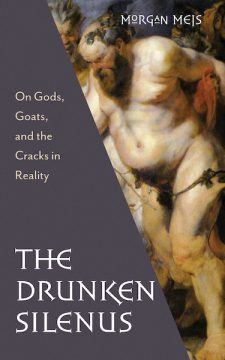Jackson Arn in Art in America:
 In his new book, The Drunken Silenus, Morgan Meis doesn’t dabble in faux honesty. He goes for the real deal, and the book is all the better for it. Although he barely writes about his personal life, The Drunken Silenus is as much of a warts-and-all self-portrait as any the autofiction boom has produced. It’s a portrait of the way his mind works, and occasionally doesn’t work, and as such, it is sometimes very humiliating indeed. The book begins as a close analysis of the titular Rubens painting and ends, 172 pages later, as an analysis of, give or take, everything. Along the way, one finds a speculative character study of Silenus (in Greek mythology, Dionysus’s fat, drunken sidekick); a biographical sketch of Rubens’s father; a reading of Nietzsche’s The Birth of Tragedy, another book that takes Silenus as the jumping-off point; a biographical sketch of Nietzsche; and a long spiel about the madness of war.
In his new book, The Drunken Silenus, Morgan Meis doesn’t dabble in faux honesty. He goes for the real deal, and the book is all the better for it. Although he barely writes about his personal life, The Drunken Silenus is as much of a warts-and-all self-portrait as any the autofiction boom has produced. It’s a portrait of the way his mind works, and occasionally doesn’t work, and as such, it is sometimes very humiliating indeed. The book begins as a close analysis of the titular Rubens painting and ends, 172 pages later, as an analysis of, give or take, everything. Along the way, one finds a speculative character study of Silenus (in Greek mythology, Dionysus’s fat, drunken sidekick); a biographical sketch of Rubens’s father; a reading of Nietzsche’s The Birth of Tragedy, another book that takes Silenus as the jumping-off point; a biographical sketch of Nietzsche; and a long spiel about the madness of war.
That this all fits together as well as it does isn’t a triumph of structure or careful reasoning so much as a triumph of tone—a certain erudite, insolent, shallowly deep, deeply shallow tone. Meis doesn’t make points so much as bellow them with varying levels of coherence, and he seems to get a kick out of stretching already questionable analogies within an inch of their lives. Consider the following: “Rubens had learned a lesson that Nietzsche was never quite able to get through his head. It doesn’t matter. It just doesn’t matter where you do it, where you live out your life. If the shit inside is solid then it will never matter. Alas, as we’ve already noted, the shit inside Nietzsche was anything but solid. It was runny.” Isn’t this slightly awful, and rather brilliant?
More here.
